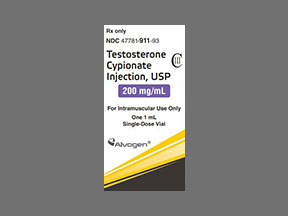
Testosterone Cypionate Coupons & Savings Card – Discount Prices from $9.56
Generic for: Depo-testosterone, Testone cik, Azmiro
My prescription
Edit
1ML of 200MG/ML, Testosterone Cypionate (1 Vial)
Select pharmacy

CVS
$25.91
COUPON PRICE
Albertsons
$9.56
COUPON PRICE
Walgreens
$14.75
COUPON PRICE
Walmart
$16.80
COUPON PRICETestosterone Cypionate savings card
Show this card to your pharmacist
Albertsons
$9.56
BIN
ID
PCN
GRP
011867
LHDC9CBB27
HT
LABH001
Powered by
Price history for Depo-testosterone (brand) & Testosterone Cypionate (generic)
1 Vial, 1ML of 200MG/ML
Average retail price for Depo-testosterone
Average retail price for Testosterone Cypionate
Average SaveHealth price for Testosterone Cypionate
Our price history data is based on aggregated prescription data collected from participating pharmacies in America. Our prescription data updates daily to reflect the latest price changes. If you notice a missing data point, it means there wasn't sufficient data available to generate a monetary value for that date.
We analyzed Testosterone Cypionate prices for (1ML of 200MG/ML, 1 Vial) over the last 12 months. The average retail price was $71.37, while the average price using the SaveHealth discount card was $23.67. That's a savings of approximately 66.83% when using our Testosterone Cypionate coupon.
Compared to the generic version, Depo-testosterone had an average price of $12.30 over the same time period. With the SaveHealth savings card, Testosterone Cypionate is -92.44% cheaper on average than Depo-testosterone.
*Retail prices are based on pharmacy claims data, and may not be accurate when we don't have enough claims.
Testosterone Cypionate dosage forms
Dosage Quantity Price from Per unit 1ML of 200MG/ML 1 Vial $16.80 $16.80 1ML of 200MG/ML 2 Vials $26.36 $13.18 1ML of 200MG/ML 3 Vials $35.04 $11.68 10ML of 100MG/ML 1 Vial $46.82 $46.82 10ML of 100MG/ML 2 Vials $83.33 $41.66 10ML of 100MG/ML 3 Vials $111.85 $37.28 30ML of 200MG/ML 1 Vial $243.88 $243.88 30ML of 200MG/ML 2 Vials $506.76 $253.38 30ML of 200MG/ML 3 Vials $765.89 $255.30
| Dosage | Quantity | Price from | Per unit |
|---|---|---|---|
| 1ML of 200MG/ML | 1 Vial | $16.80 | $16.80 |
| 1ML of 200MG/ML | 2 Vials | $26.36 | $13.18 |
| 1ML of 200MG/ML | 3 Vials | $35.04 | $11.68 |
| 10ML of 100MG/ML | 1 Vial | $46.82 | $46.82 |
| 10ML of 100MG/ML | 2 Vials | $83.33 | $41.66 |
| 10ML of 100MG/ML | 3 Vials | $111.85 | $37.28 |
| 30ML of 200MG/ML | 1 Vial | $243.88 | $243.88 |
| 30ML of 200MG/ML | 2 Vials | $506.76 | $253.38 |
| 30ML of 200MG/ML | 3 Vials | $765.89 | $255.30 |
